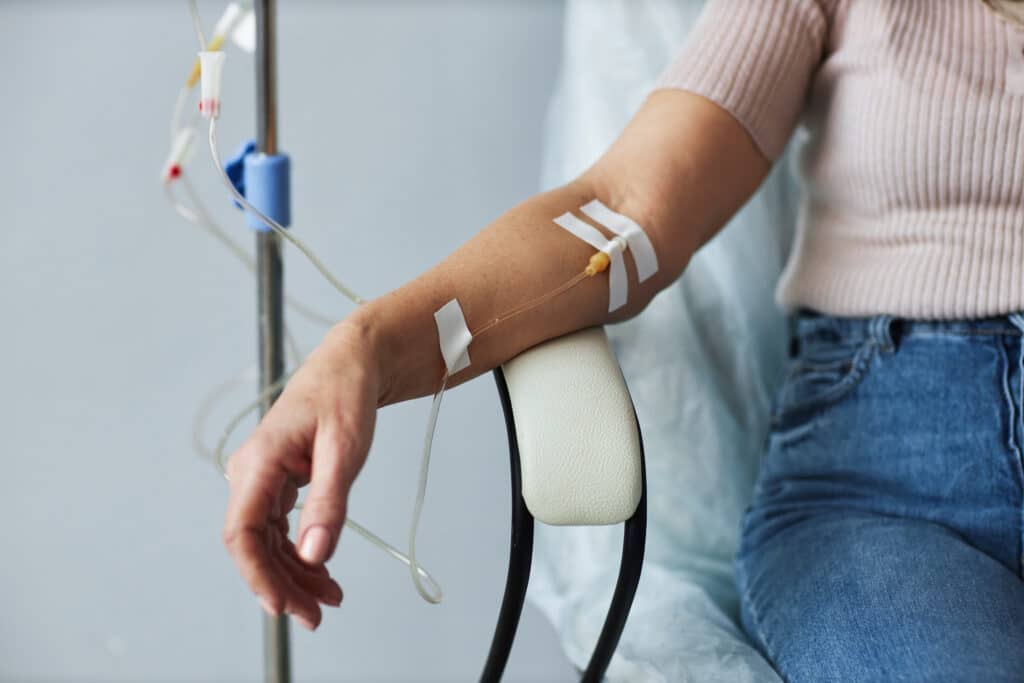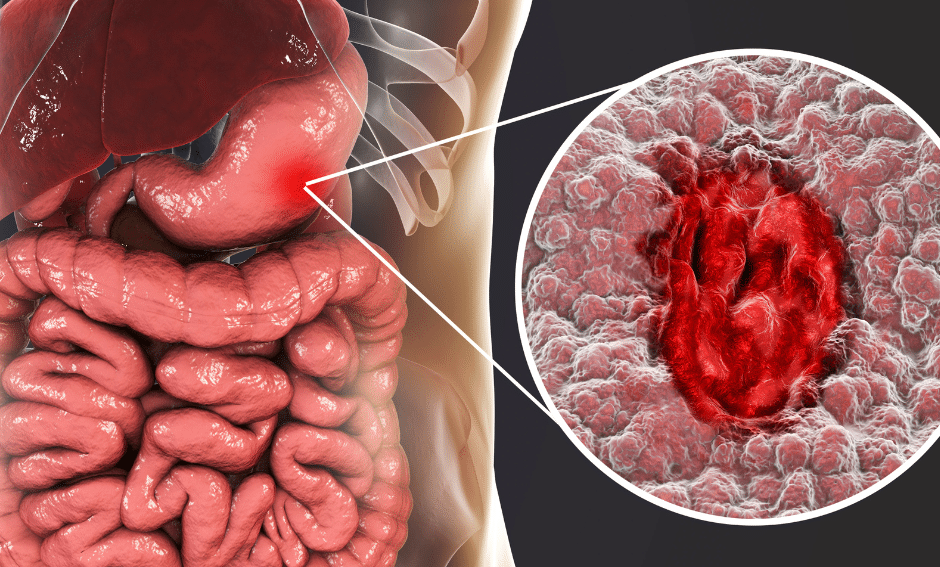Gastroparesis Awareness Month – Learn More from DHC
What is Gastroparesis?
At Digestive Healthcare Center, we want to ensure that patients have information about an array of digestive health conditions, to promote positive gastrointestinal health year-round. One such condition is gastroparesis, which is a digestive condition that affects the motility of the muscles in your stomach. Normally, after you swallow, the muscles within the wall of your stomach grind up the food and push it to the small intestine for the next phase of digestion. However, with gastroparesis, the ability of your body to move food through your digestive tract is slowed, preventing your stomach from emptying properly. Gastroparesis is not a common condition; it only affects about 10 men and 40 women out of 100,000 people. August is Gastroparesis Awareness Month – keep reading to learn more about this condition from the gastroenterology specialists at Digestive Healthcare Center.
What are the Symptoms and Causes of Gastroparesis?
Although many people with gastroparesis do not have any noticeable symptoms, the condition can also cause symptoms that make daily life difficult and uncomfortable. Those with this condition often experience:
- Feeling of fullness after a few bites of food
- Nausea
- Vomiting
- Acid reflux
- Abdominal pain/bloating
- Lack of appetite
- Changes in blood sugar levels
The direct cause of gastroparesis is unknown, however, it is often believed to be caused by damage to a nerve that controls the muscles of the stomach. Women are more likely than men to develop gastroparesis. Other risk factors include:
- Having diabetes
- Having surgery on your esophagus, small intestine, or stomach
- Having undergone certain cancer treatments, such as radiation therapy
- Taking certain medications that slow the rate of stomach emptying
How Gastroparesis is Treated
The first step of treating gastroparesis is determining whether or not you have an underlying condition related to your gastroparesis. If so, speak with your doctor about coming up with a plan of action that works for you and your body. When the cause is not clear, your doctor may refer you to a dietitian for additional guidance. A dietitian might suggest that you:
- Chew food thoroughly
- Eat smaller, more frequent meals
- Choose foods low in fat and fiber
- Drink plenty of water and/or liquids containing glucose and electrolytes
- Avoid alcohol
- Avoid carbonated drinks
- Do some light exercise after eating
- Avoid lying down directly after eating
- Take a multivitamin daily
Medications for Gastroparesis
Aside from dietary changes, there are a few medications that may help to ease certain symptoms of gastroparesis. You should speak with your doctor about whether or not these medications would be suitable for you.
- Metoclopramide (Reglan) and erythromycin (Eryc) are both medications to help stimulate the stomach muscles, but come with the risk of serious side effects
- Antiemetics, such as ondansetron (Zofran), are a class of drugs used to help reduce nausea and vomiting
Surgical Treatment for Gastroparesis
There are surgical procedures and methods available for treating gastroparesis, including myomectomy and gastric pacemakers. However, it’s best to speak with your gastroenterologist to determine which option is best for you, depending on your individual needs.
Doctors are working vigorously to find new, more effective treatments for gastroparesis. With the help of endoscopic procedures, doctors are able to test potential therapies that may be successful in treating this condition.
Gastroparesis Awareness Month
August is Gastroparesis Awareness Month. With the help of funding by IFFGD (International Foundation for Gastrointestinal Disorders), Gastroparesis Awareness Month has been listed on the U.S. National Health Observances Calendar since early 2016. This month is dedicated to focusing attention on important health information regarding gastroparesis diagnosis, treatment, and preventative measures. With the number of cases on the rise, the goal is to continually spread awareness so that patients and families can successfully manage this condition.
Top Gastroenterologists in New Jersey at Digestive Healthcare Center
At Digestive Healthcare Center, our board-certified physicians specialize in gastroenterology and are committed to providing high quality care for our patients with gastrointestinal conditions in Central New Jersey. Your health is our priority and we want to help you in any way we can. We see patients and perform procedures at our offices in Hillsborough, Somerville, and Warren, and are proud to see patients from the surrounding areas in our offices and via telehealth virtual visits. If you are experiencing uncomfortable symptoms related to digestion, please don’t hesitate to schedule an appointment or contact us today at the location nearest you. We look forward to helping you maintain positive digestive health.
Make an Appointment for Comprehensive Digestive Care in NJ
At Digestive Healthcare Center, we want each patient at our three offices in New Jersey to feel confident about their digestive health. We encourage you to contact us today to make an appointment with one of our expert gastroenterologists – don’t wait to start putting your digestive health first!
Recent Blogs
Learn more about all things digestive health and wellness by checking out our recent gastroenterology blogs.

Infusion therapy has become a vital treatment option for individuals with Crohn’s disease, offering relief when traditional medications may fall short. This method delivers medication directly into the bloodstream, providing quicker and more targeted effects to help manage inflammation, reduce symptoms, and improve quality of life. For those with moderate to severe Crohn’s disease, infusion […]

The Advancement of Ulcerative Colitis Treatment Ulcerative colitis (UC) is a chronic inflammatory bowel disease (IBD) that affects the lining of the colon and rectum. Those diagnosed with UC often experience flare-ups that can significantly impact their quality of life. Fortunately, advancements in medical treatment have made managing this condition more achievable. One option is […]

Diverticular disease and diverticulitis are related digestive health conditions that affect the large intestine (colon). With diverticular disease, small, bulging pockets develop on the lining of the colon. When these pockets become inflamed or infected, the condition is called diverticulitis. They are very common – especially after age 40 – and rarely cause problems. At […]

























